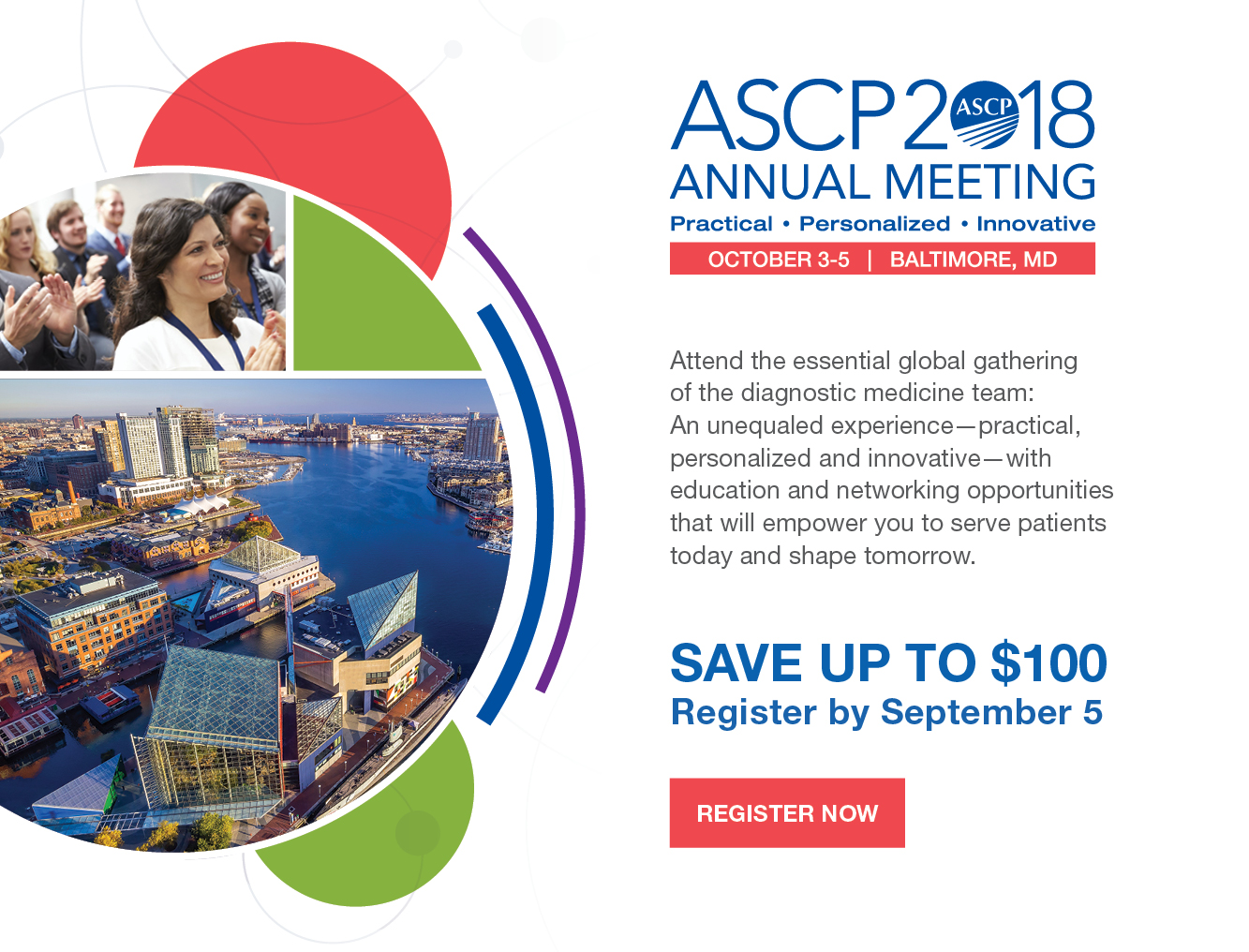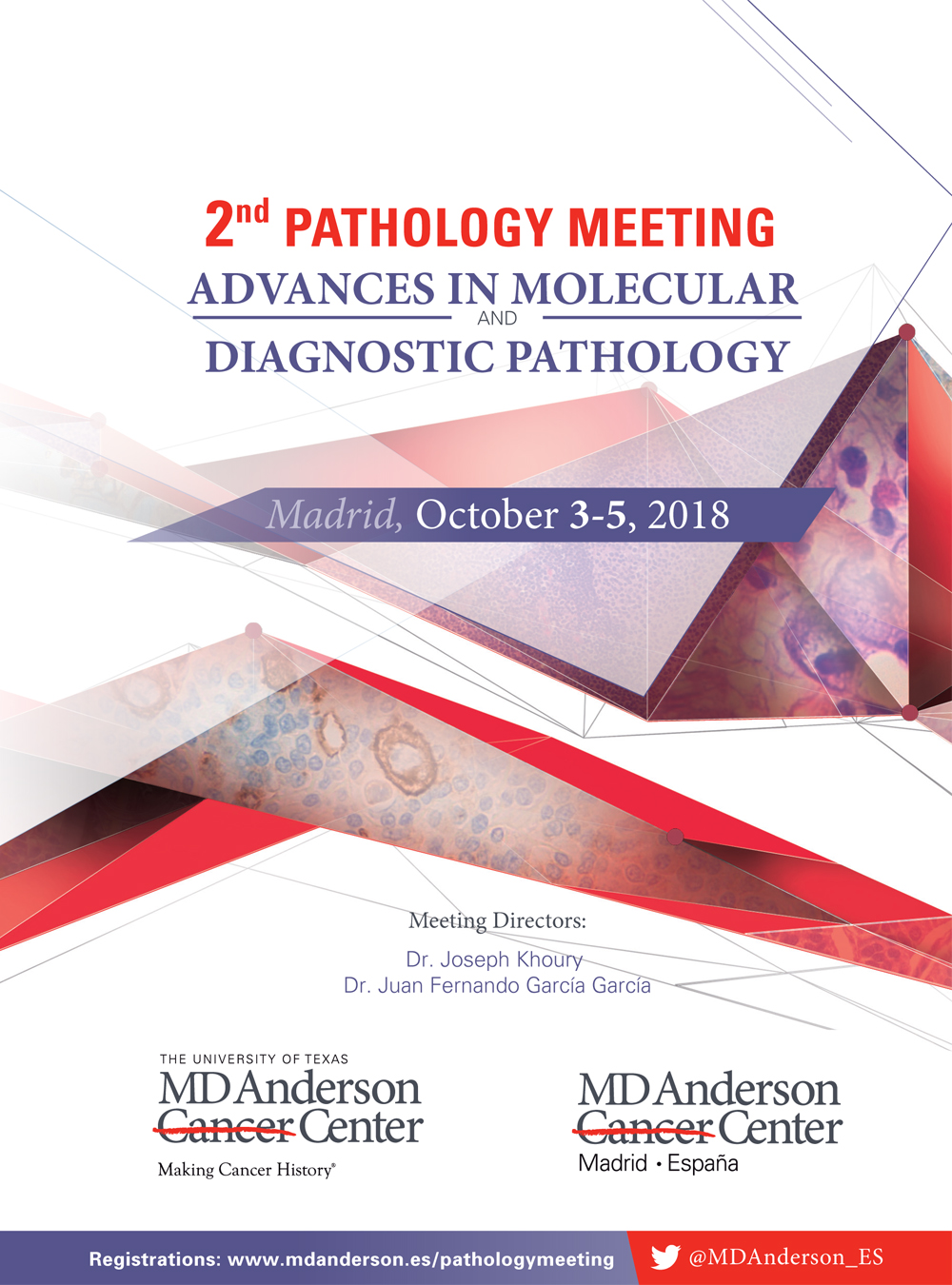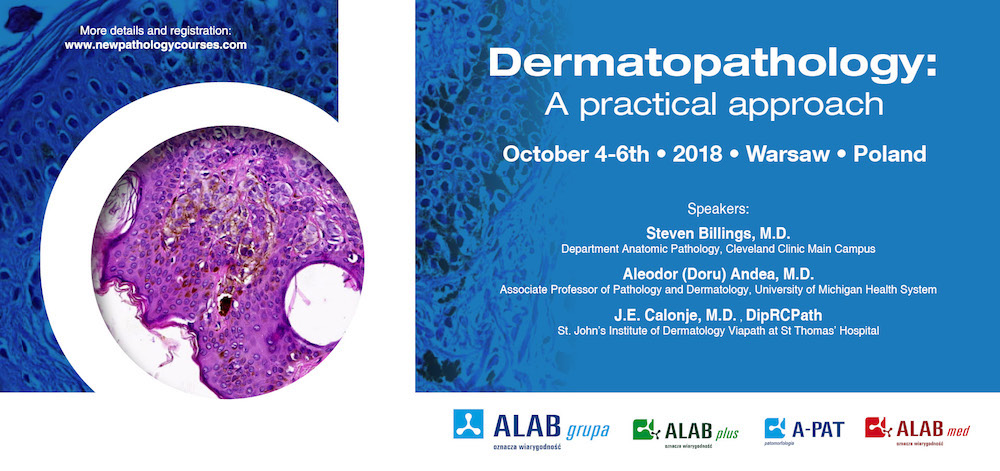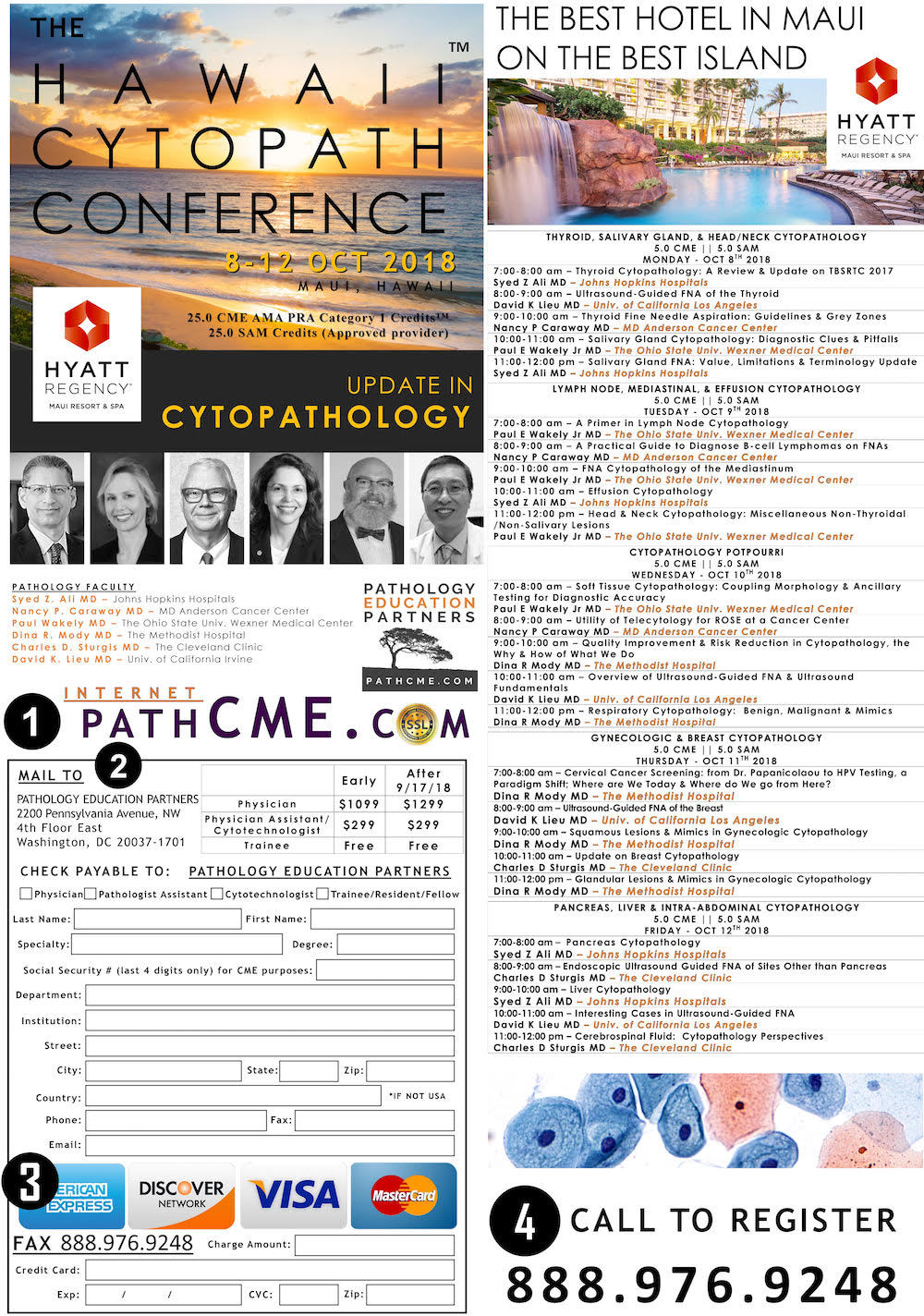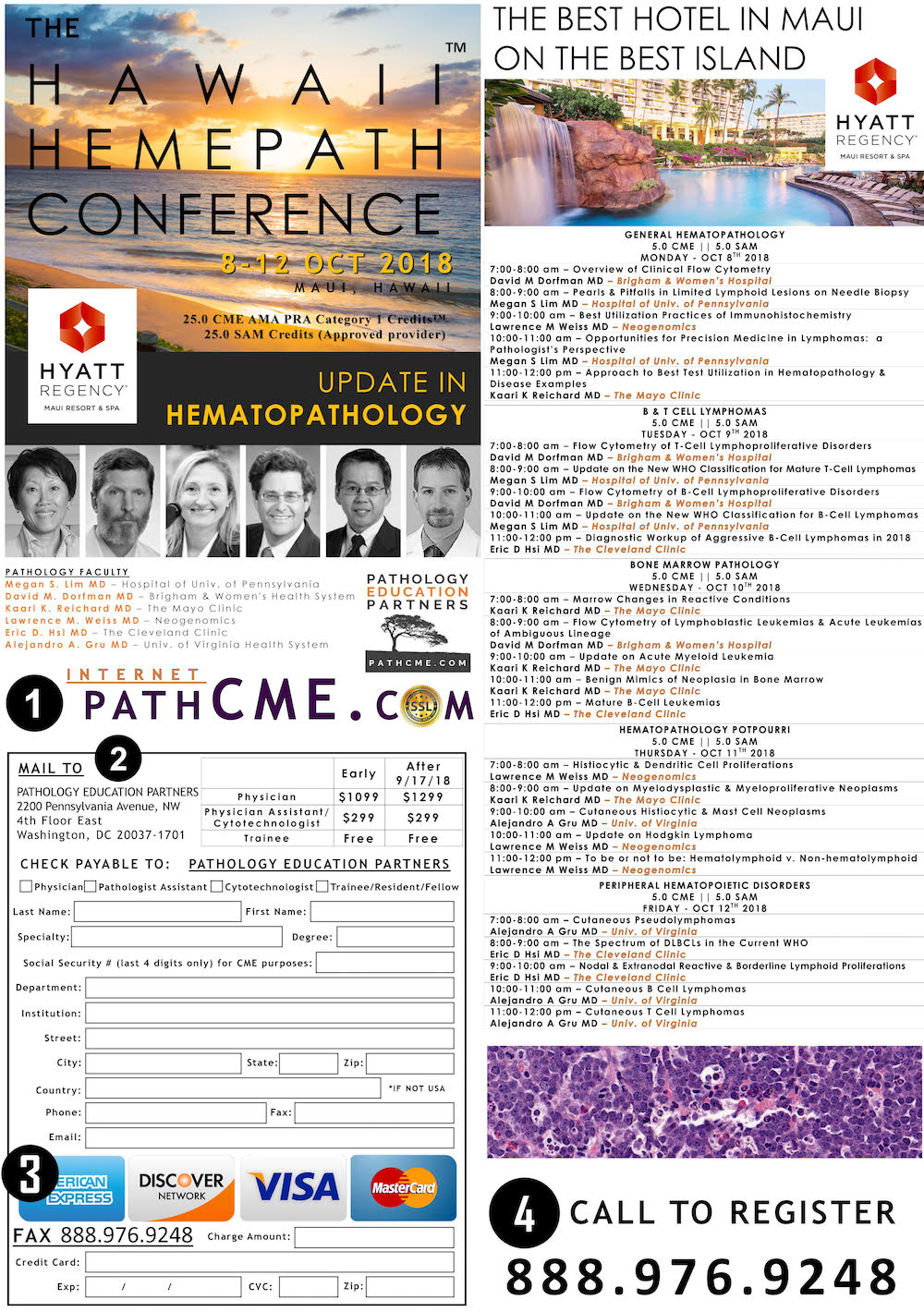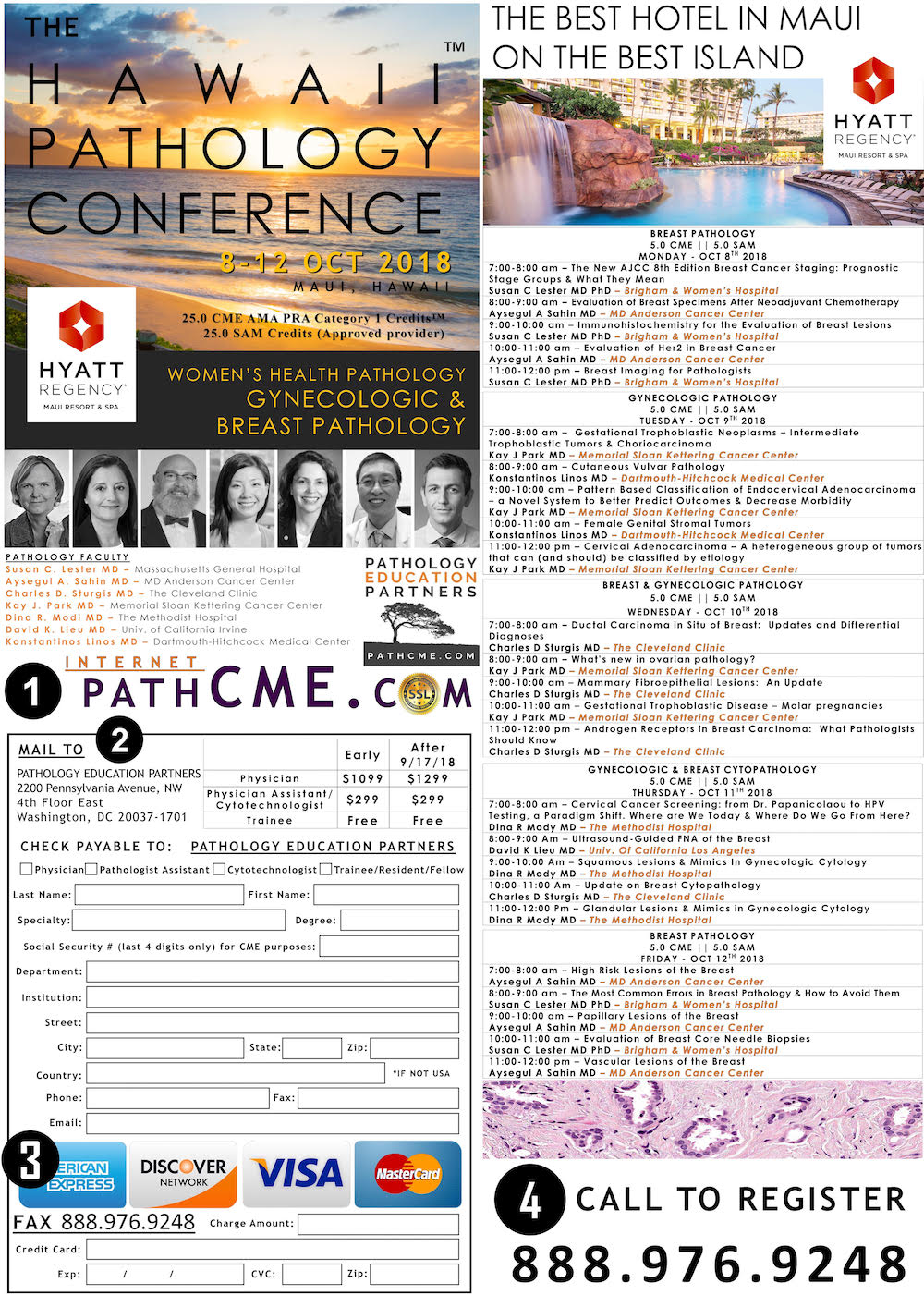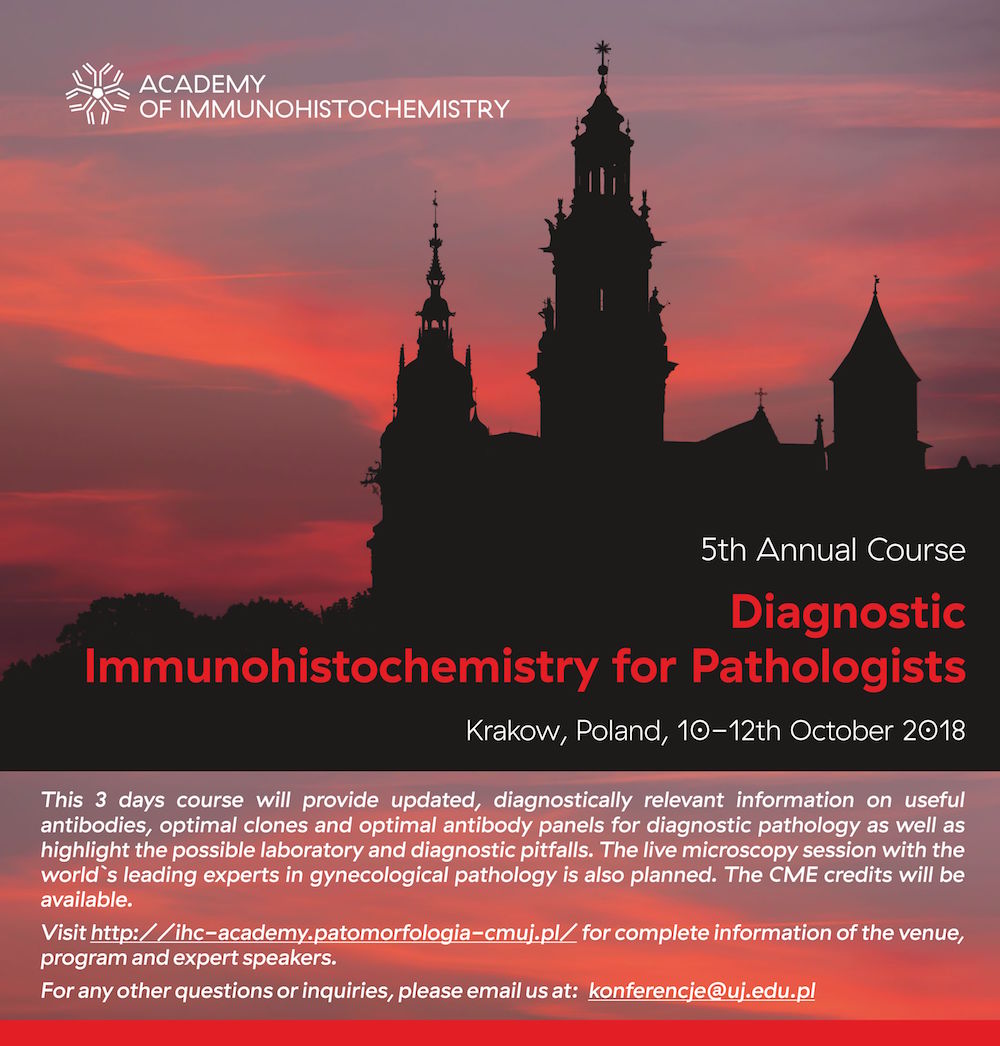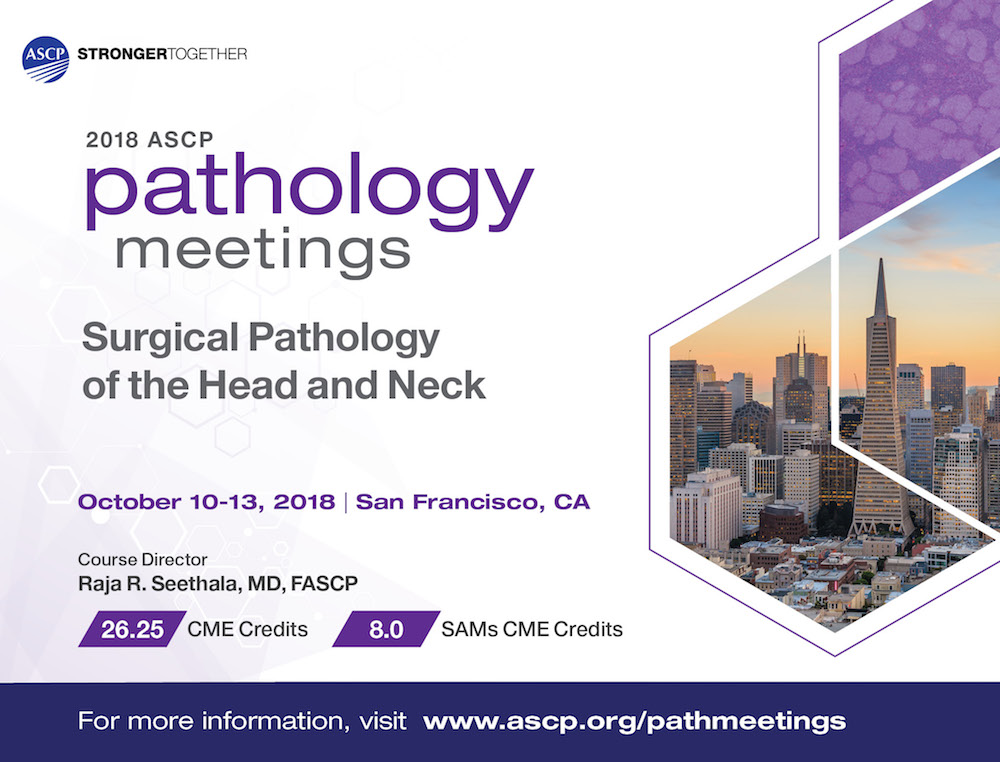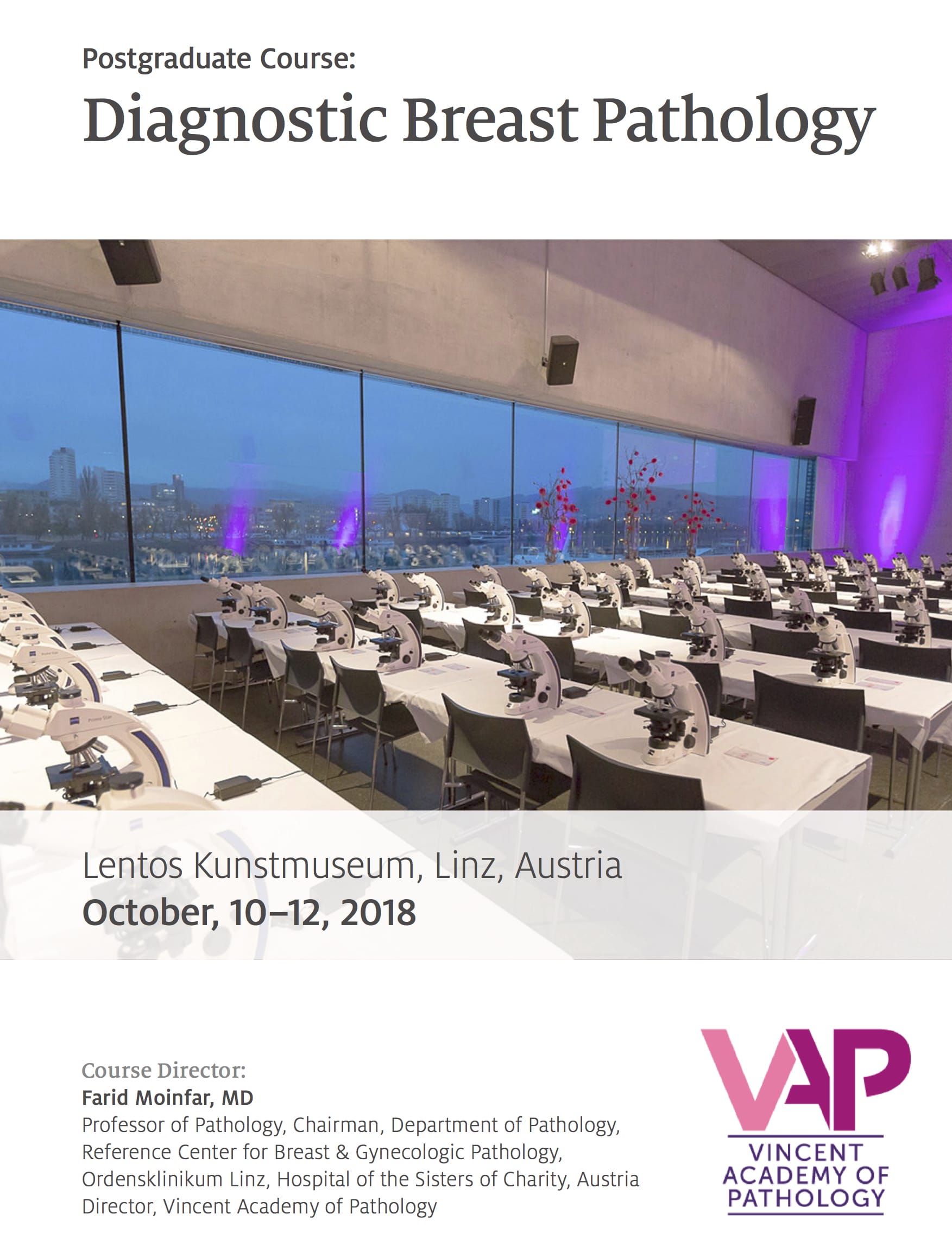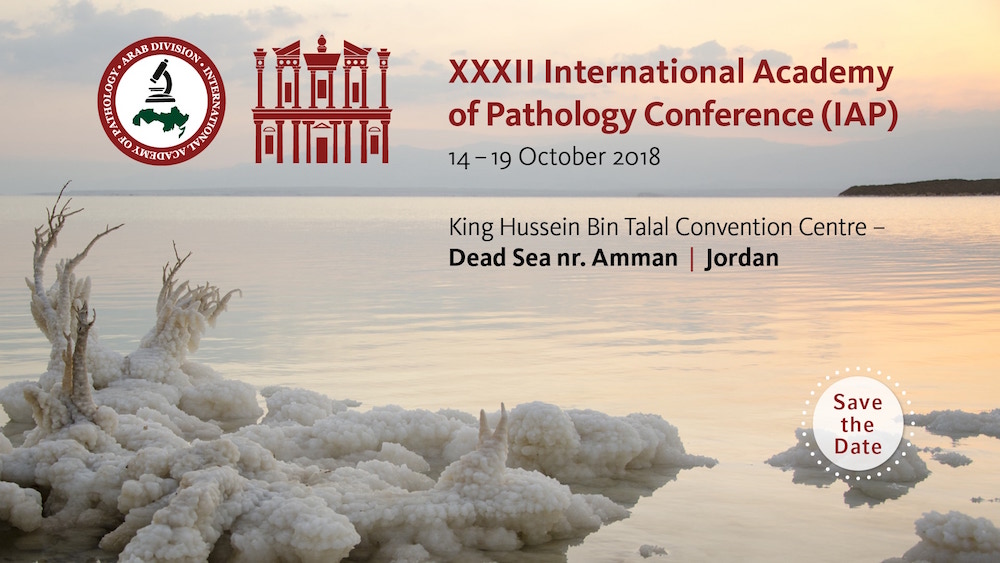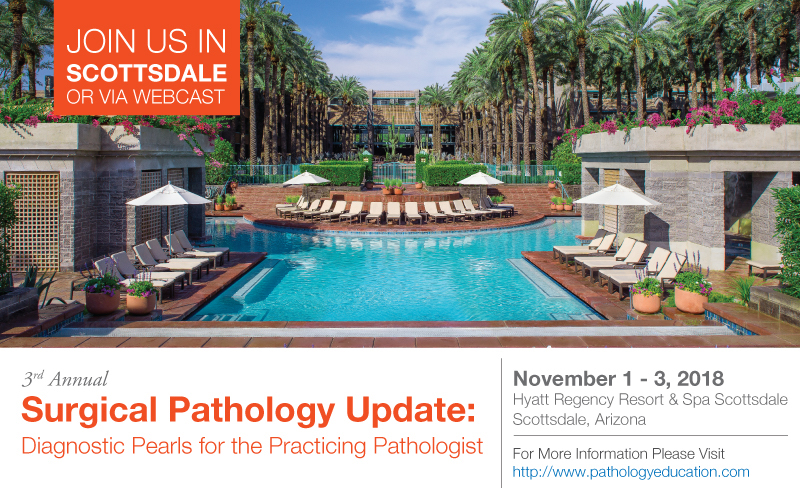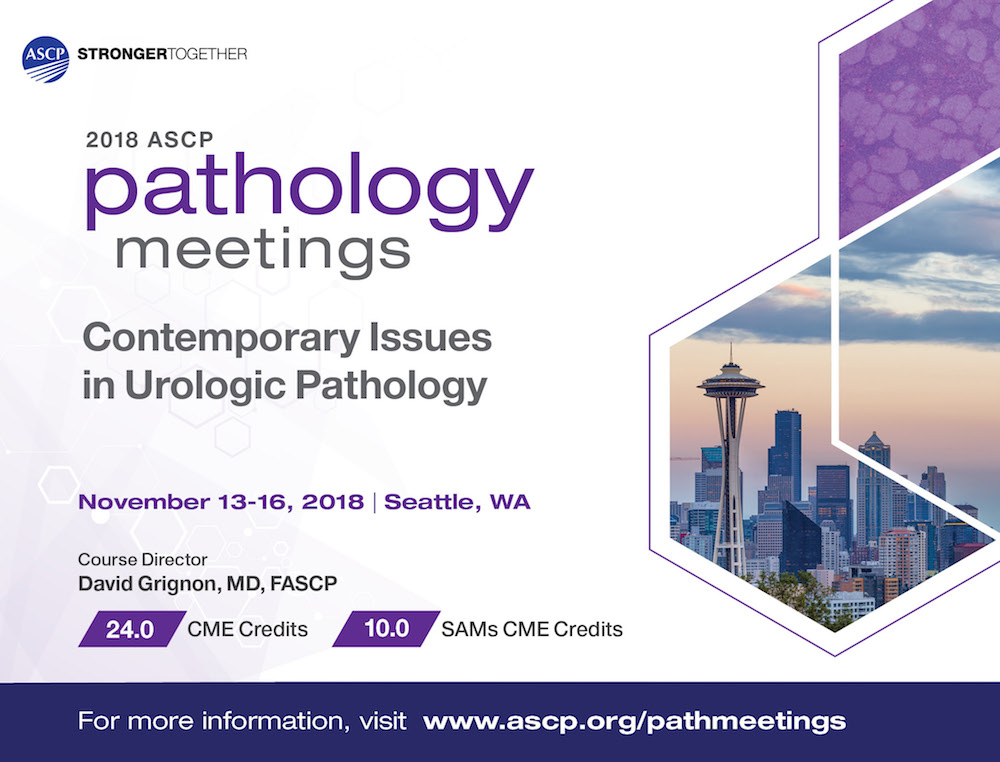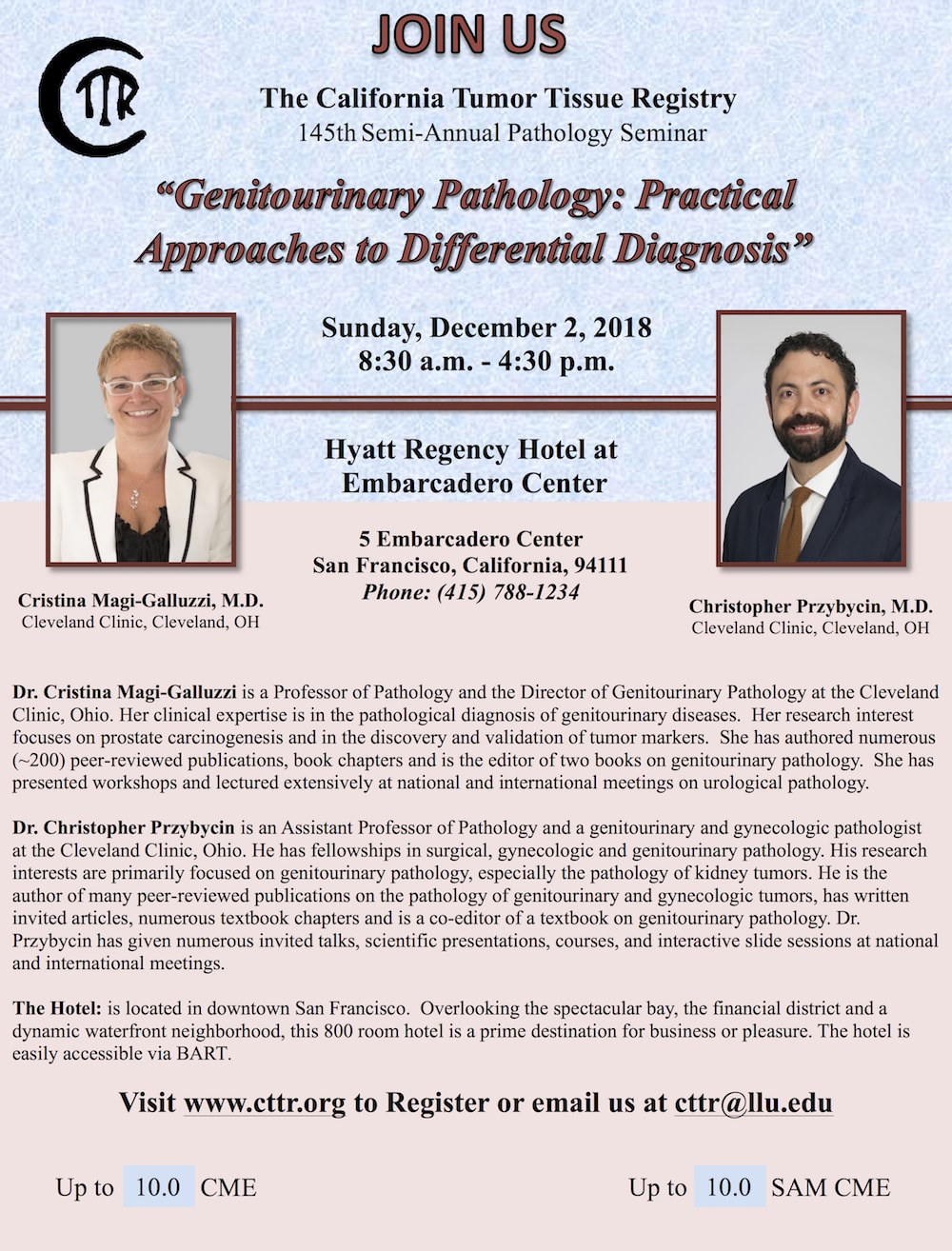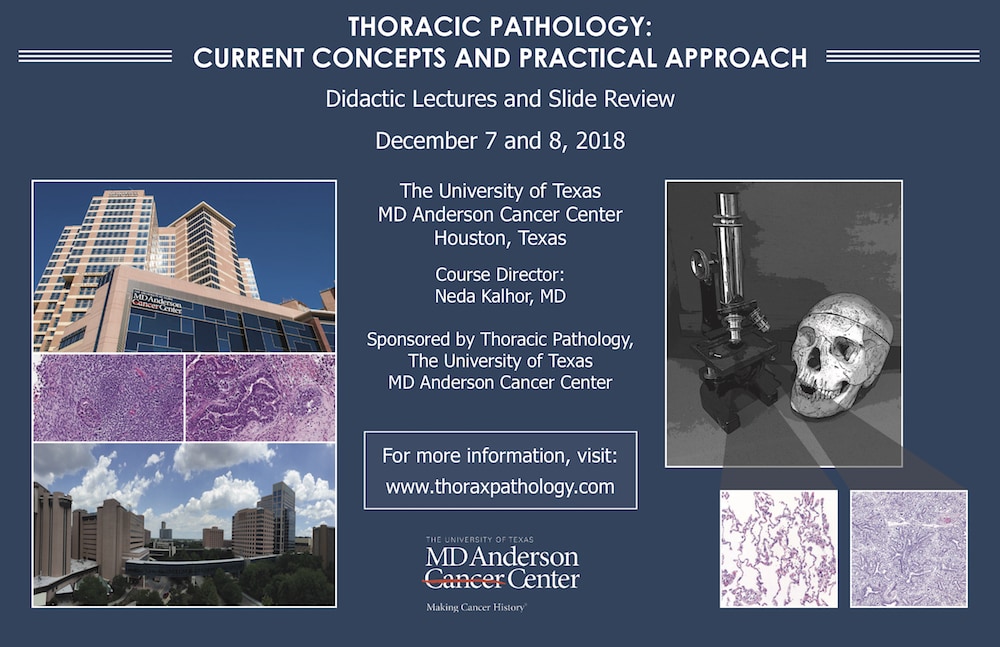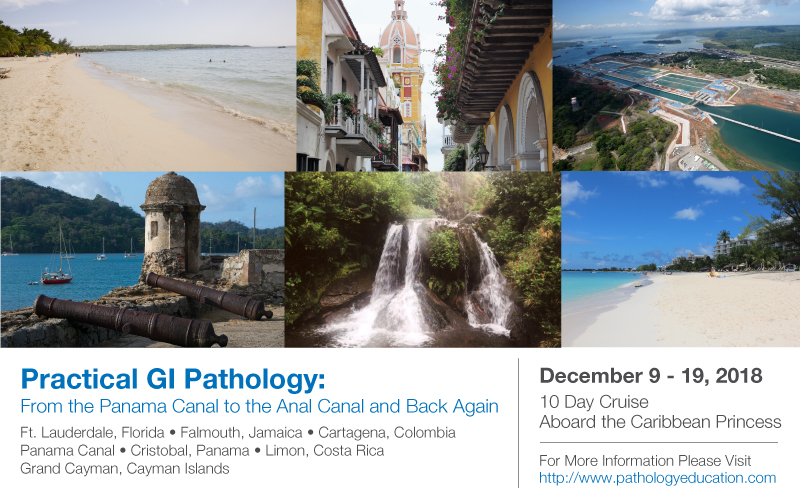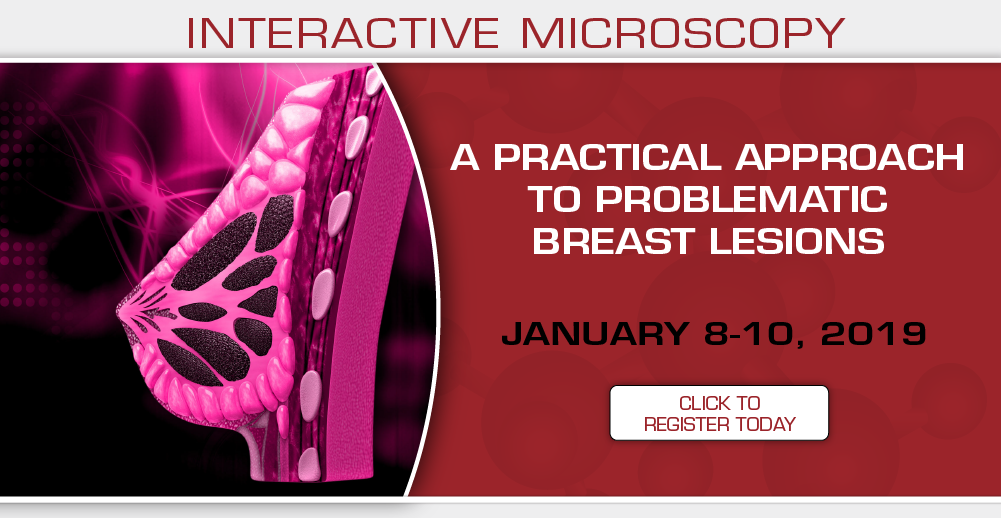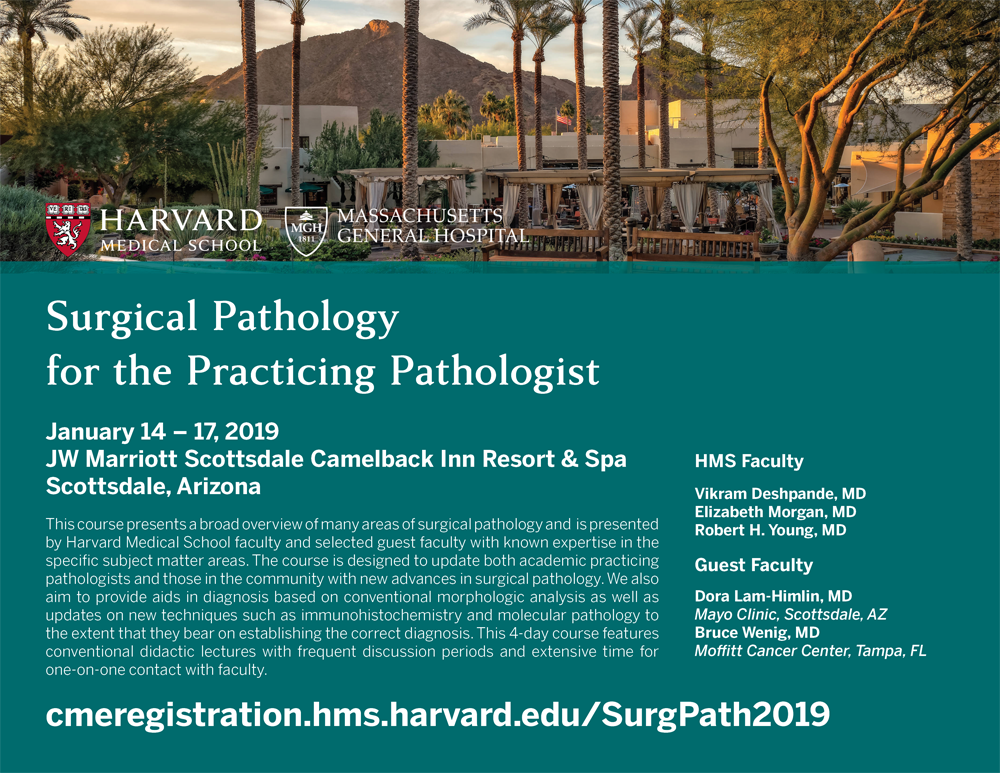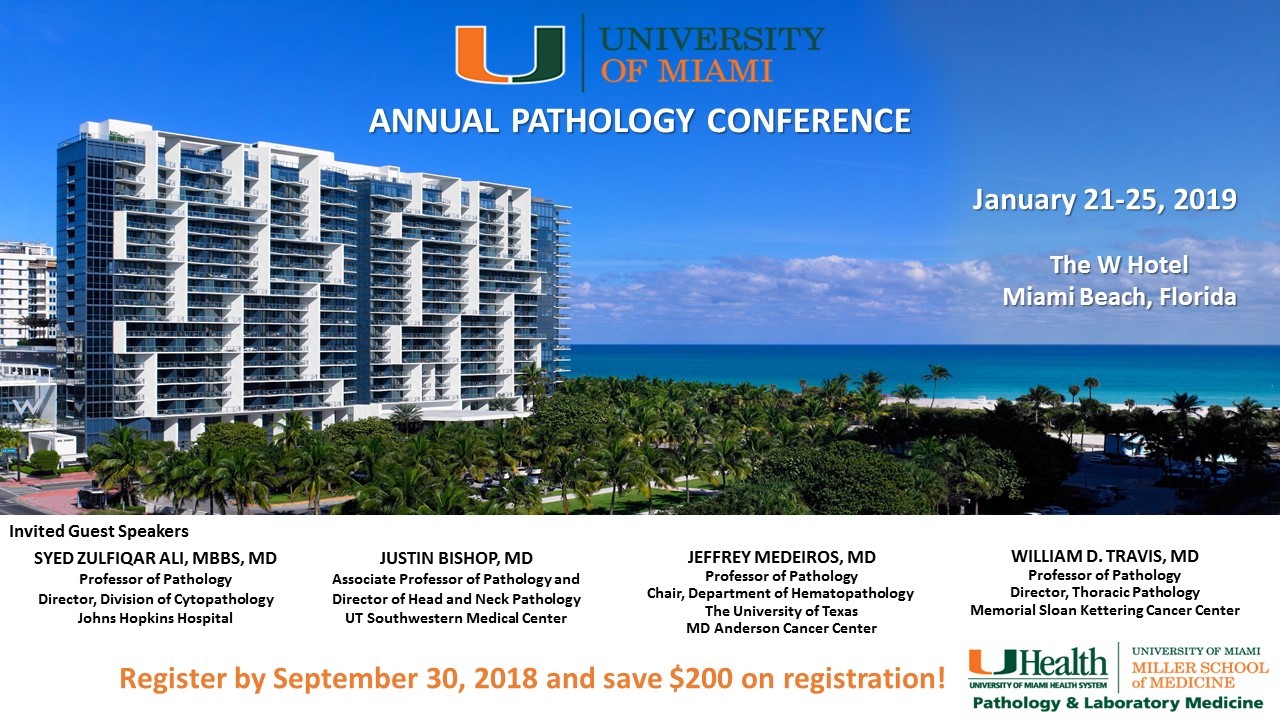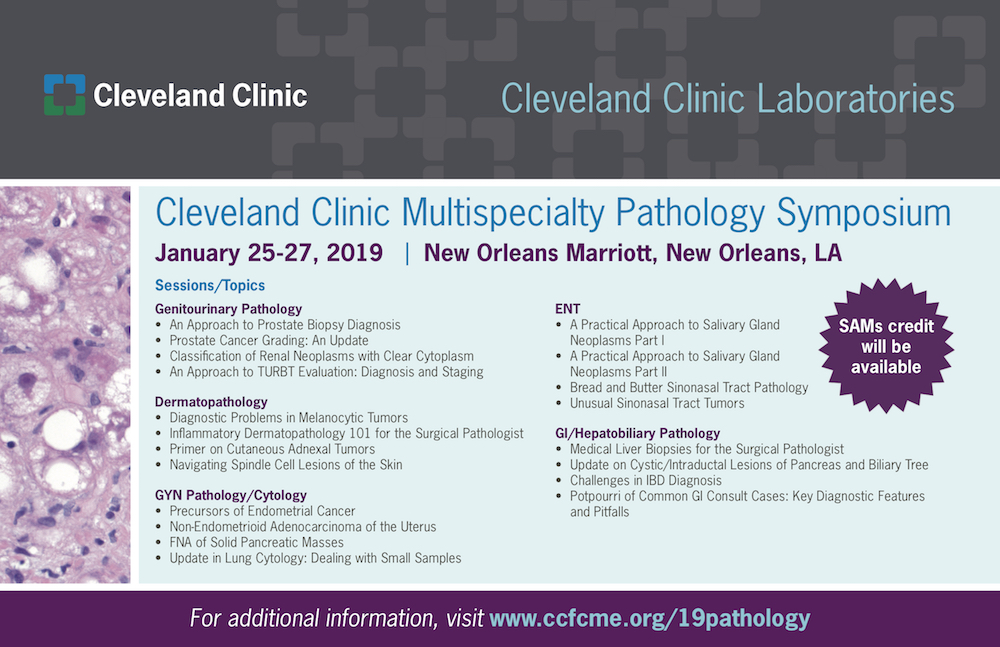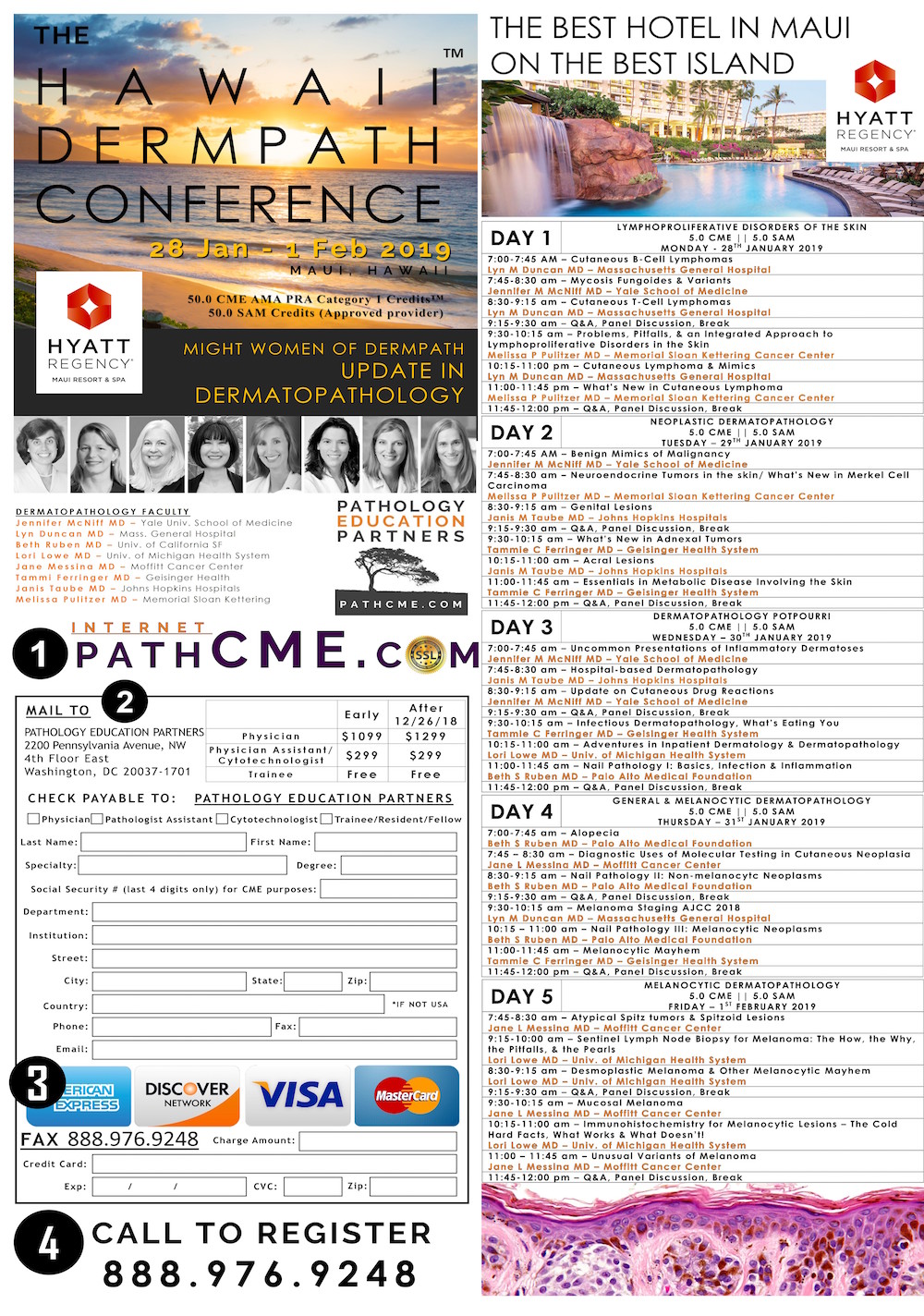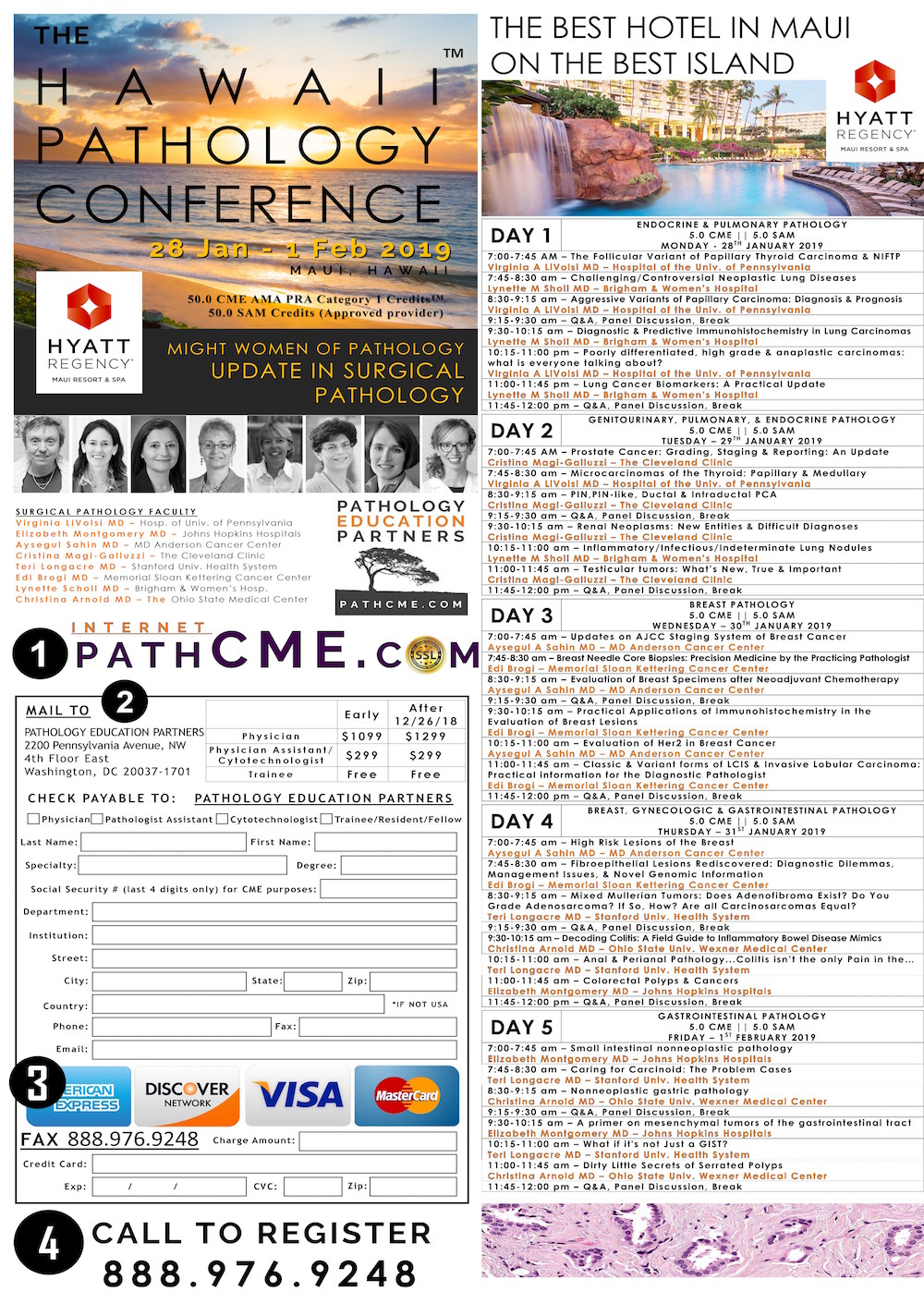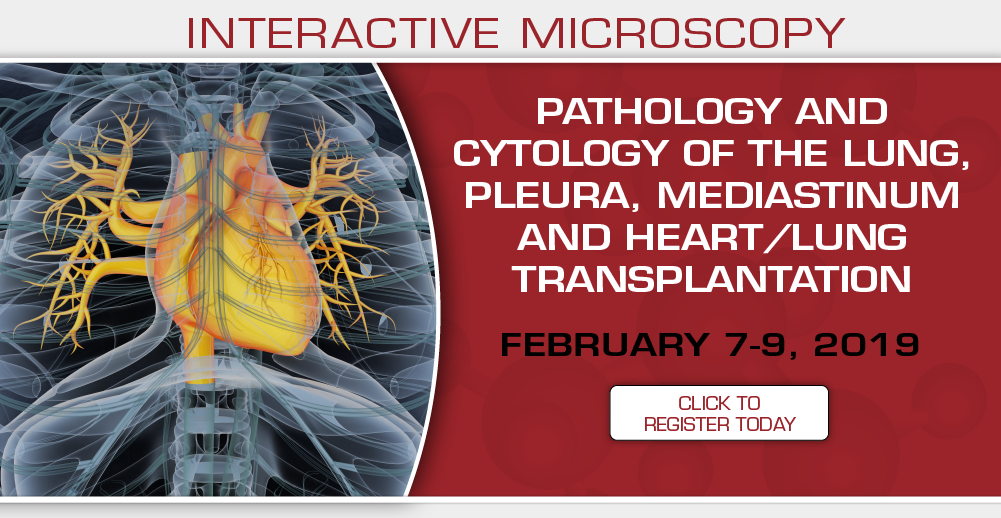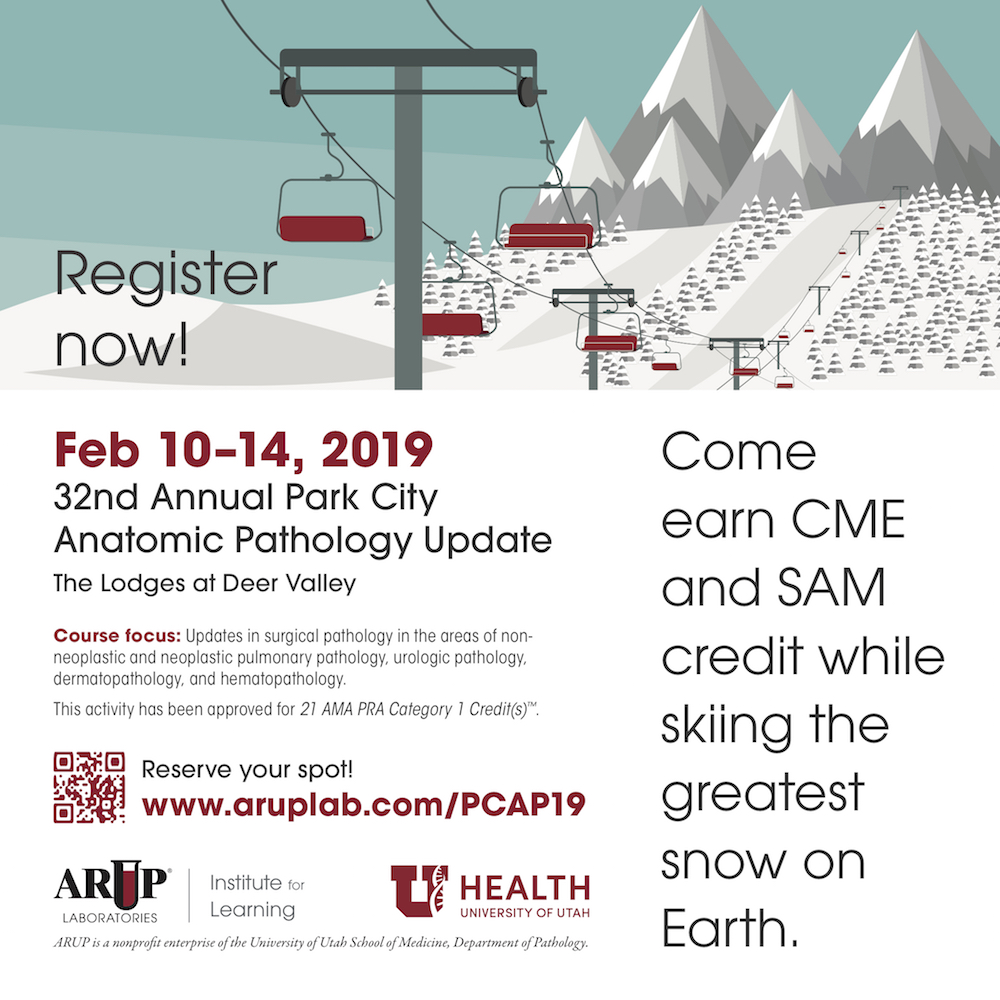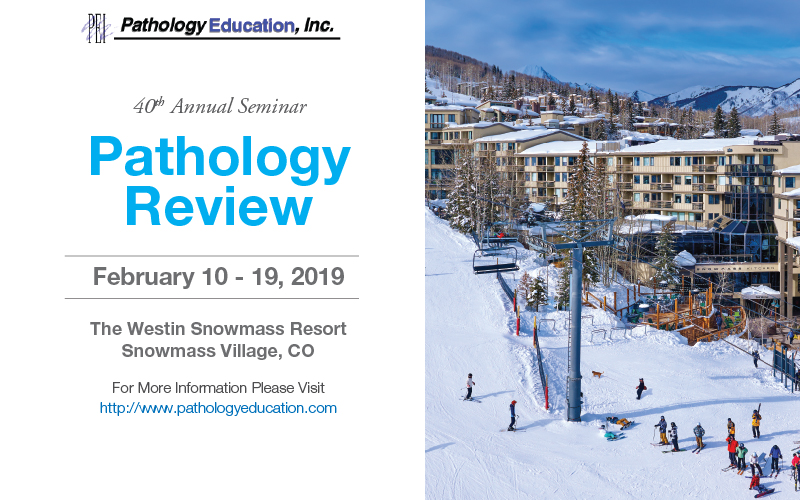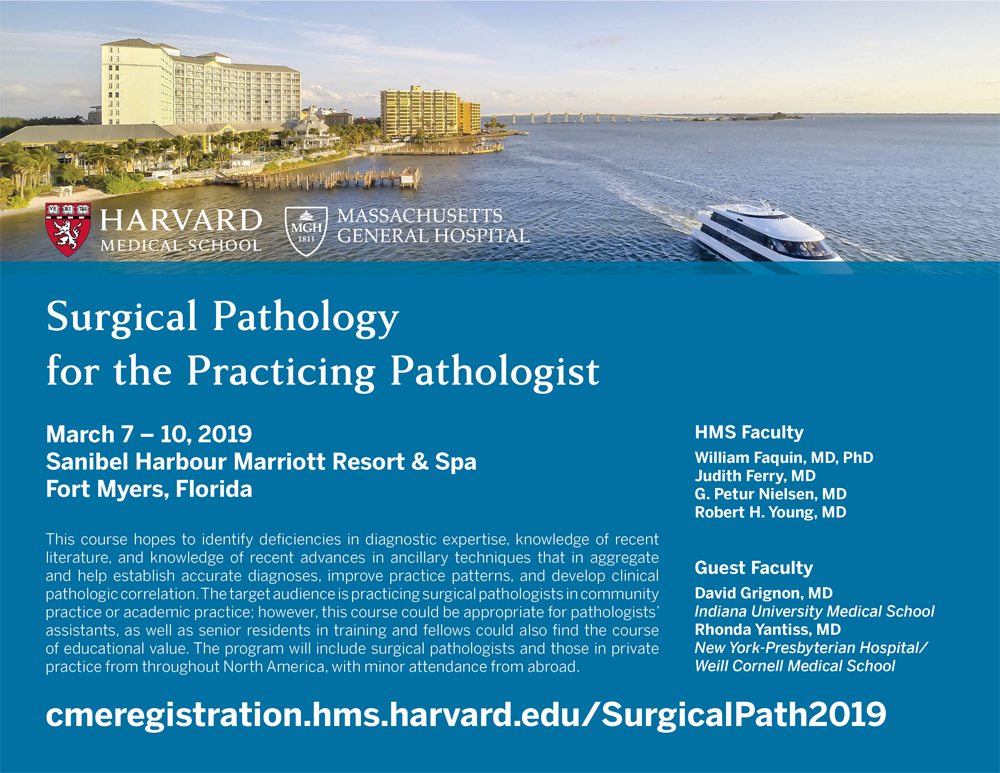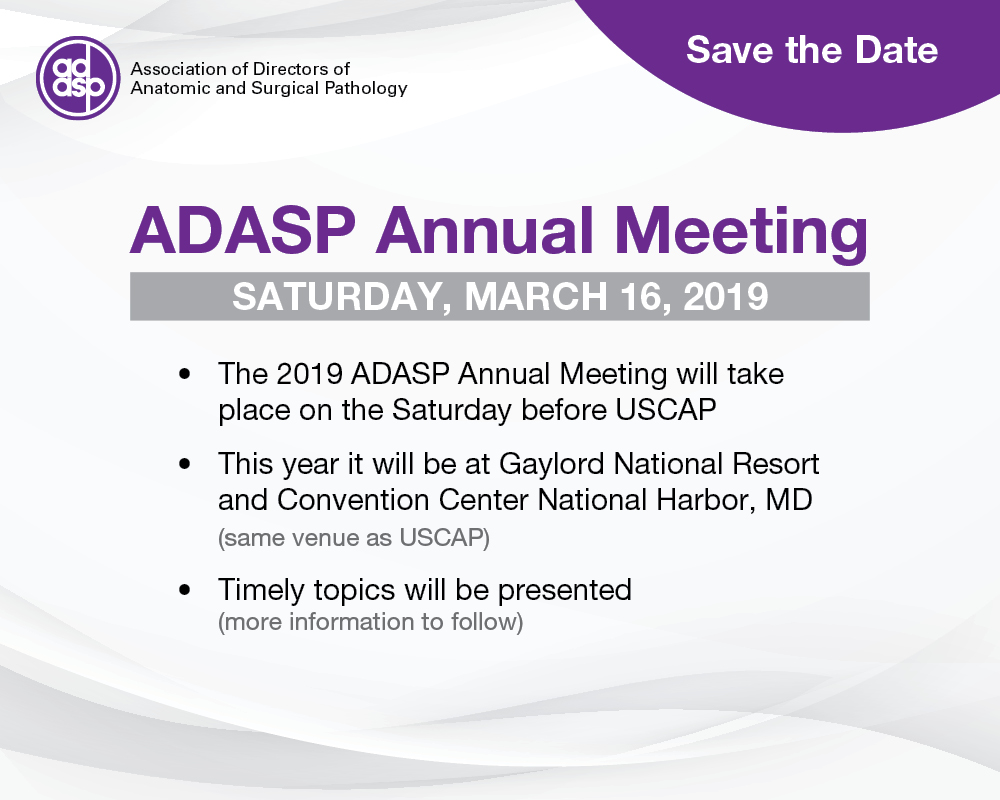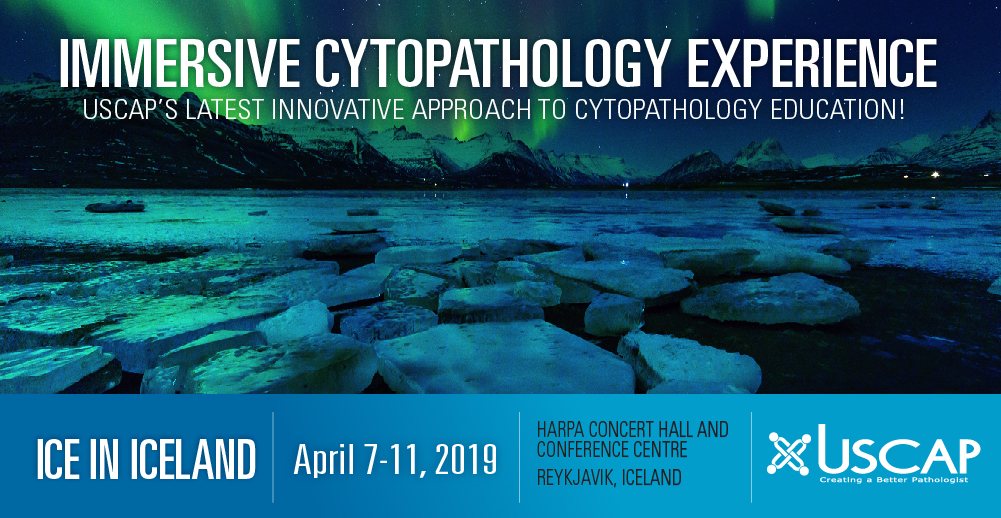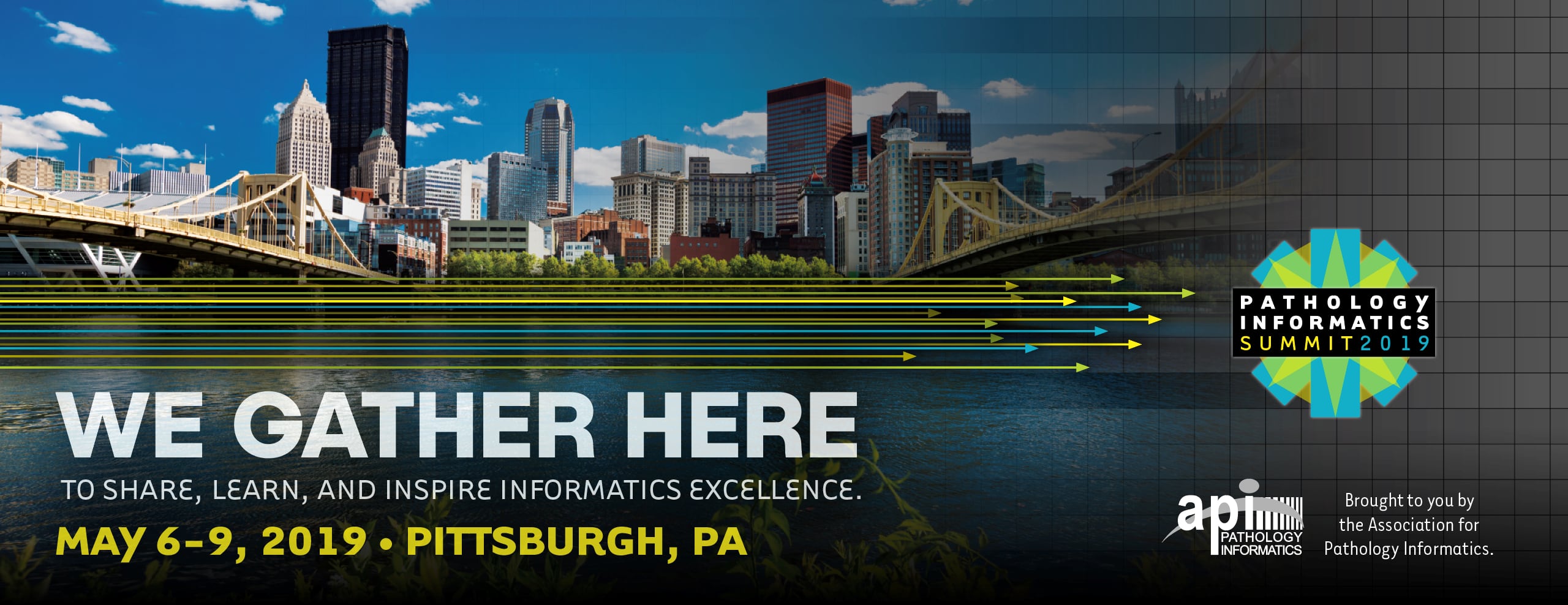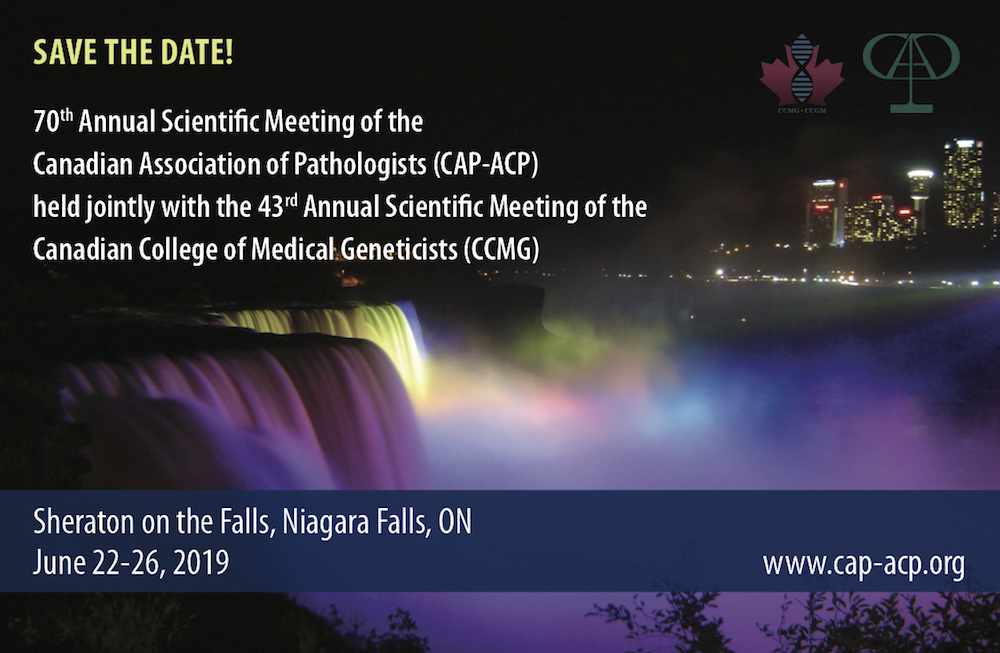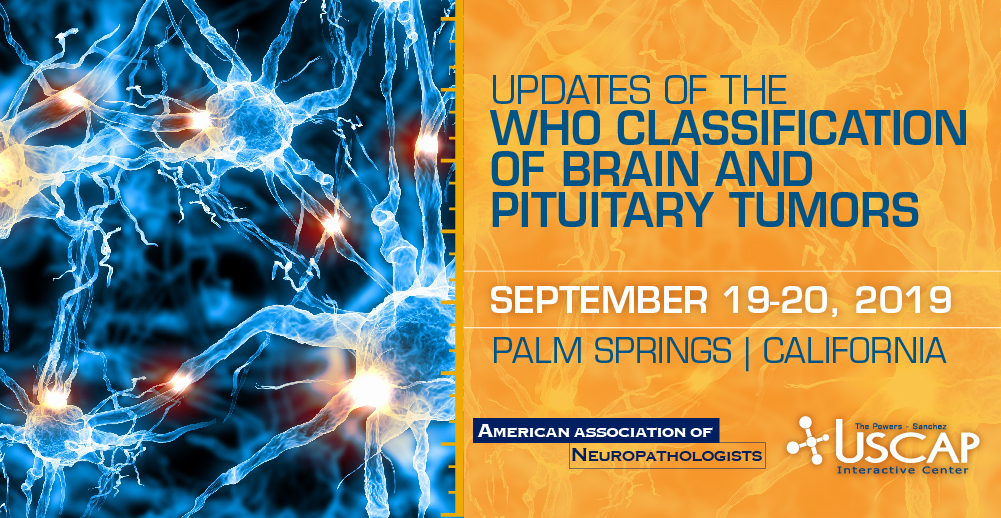Advertise your Pathology Conferences and Webinars with us!
To reach the 8,000 monthly visitors of this page, email your text, graphics and contact information to PathOutAds@gmail.com.
Ads are posted until the conference / webinar date. Email us the ad once you have the date since there is no additional charge for changes.
There are 5 options for posting:
(a) $375 for a one line listing (date, location, title and link), pay online
(b) $675 for a highlighted listing (most of the ads below are highlighted listings) with graphics, text and links, pay online
(c) $1,500 for a highlighted listing plus one email blast (example) or social media posting featuring your ad, pay online
(d) $2,500 for a highlighted listing plus a Chapter banner ad for one year, pay online
(e) $3,645 for 6 highlighted listings (10% off) plus one email blast or social media posting plus an Organization listing below, pay online
Links to all recent posts are included in an email blast sent biweekly to 5,644 subscribers for no additional charge.
Frequently asked questions Testimonials
Map of US with regions
USCAP Presents:
PLACENTAL PATHOLOGY - A Tour of Common and Rare Pathologies with a Focus on Clinical Relevance
The placenta provides a wealth of information, retrospectively about the fetus and prospectively regarding the infant. Its examination is an essential component of the autopsy in cases of fetal or infant death, often gives useful insights of the diagnosis and treatment of sick newborns, and reflects the impact of maternal disorders on pregnancy. Yet, most pathologists have had little or no education or training in the examination of the placenta, including its histologic appearance in health and disease, and particularly the range of appearances with gestational age. Pathological examination of the placenta is probably the most under-utilized pathologic assessment of any human tissue.
This focused course provides the unique opportunity to learn from two experts in an intimate mentoring environment, and to close the practice gaps that reflect deficits in teaching and learning the extraordinary variants of placental pathology and how they relate clinically to infant and maternal management.
Course Location: Palm Springs, CA
Course Director: Theonia K. Boyd, M.D.

October 13 - 14, 2018
Vancouver, BC
The Pacific Northwest Society of Pathologists
Century Plaza Hotel
Fall CME in Beautiful Vancouver British Columbia

For more information and to Register online, visit us at: www.pnwsp.org
10 hours of Category I hours approved by CAP
Faculty: Aysegul Sahin, MD, Paula Gordon, OBC, MD, FRCPC, Caroline Mariano, MD,
Carolyn Shiau, MD, FRCPC, DABP, Graham Slack, MD and Martin Trotter, MD, PhD, FRCPC
Brochure
[#7469]
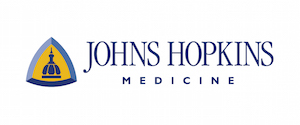
October 20-21, 2018
The Johns Hopkins Hospital
Baltimore, Maryland
Johns Hopkins University School of Medicine Presents
18th Annual Current Topics in Gastrointestinal and Liver Pathology

Website
This activity has been approved for AMA PRA Category 1 Credits TM
Approved for Self-Assessment Module (SAM) for Maintenance of Certification
[#7277]
USCAP Presents:
THORACIC PATHOLOGY
Thoracic specimens are commonly encountered in clinical practice derived from biopsy and surgical procedures on pulmonary, cardiovascular and mediastinal tissue. The panorama includes neoplasms and non-neoplastic entities. The fact that many of these require evaluation for medical diseases of the thorax provokes anxiety among pathologists, particularly where subspecialty pathologists are not readily available. The last five years contributed a dizzying array of updates in classification, nomenclature and reporting guidelines. Therefore, it’s time for pathologists to update their knowledge and skills in the diagnosis of thoracic pathology in an intimate mentoring environment that unites experienced experts with pathologists desiring a contemporary review of modern thoracic pathology.
Course Location: Palm Springs, CA
Course Director: Joseph J. Maleszewski, M.D.
USCAP Presents:
Modern Surgical Pathology Through the Expert Eyes of APSS-USCAP
This inaugural co-branded interactive microscopy course presents the synergistic union of expert surgical pathologists from the prestigious Arthur Purdy Stout Society and from USCAP, collaborating (through education of pathologists) to eliminate a variety of practice gaps in diagnostic surgical pathology. For example, there is a misdiagnosis rate of about 10% in breast biopsies, but for some notoriously problematic lesions, the rate is even higher.
A review of the literature and the collective clinical experience of this faculty as consultant surgical pathologists have clearly documented areas in diagnostic surgical pathology that remain problematic even for experienced pathologists. Examples include the categorization of proliferative breast lesions, cervical intraepithelial neoplasia, small glandular proliferations in the prostate, and soft tissue lesions. With the frequent use of core needle biopsy, pathologists are often faced with the challenge of distinguishing these entities on small specimen samples.
The value of this course is its intent to eliminate diagnostic errors by highlighting pitfalls and approaches to resolve them using routine microscopic examination of H&E-stained sections and immuno-stains. The role of newer adjunctive molecular tests will also be discussed where appropriate. Thus, this course addresses medical knowledge and competence with the goal of improving clinical practice.
Course Location: Palm Springs, CA
Course Director: Laura C. Collins, M.D.
November 4-6, 2018, Digital Pathology Association: Pathology Visions, Manchester Grand Hyatt, San Diego, California (USA) [#7028]
USCAP Presents:
Pitfalls and Pearls in Gynecologic Pathology
The sub-specialized diversity of gynecologic pathology covers numerous sites, diseases and cancers with nuanced details regarding classification of disease, intra-operative consultations, newly-described tests, and staging of gynecologic malignancies. This course concentrates on the intricacies of these complex elements in an effort to enhance what is encountered in real-time clinical practice and introduces surgical pathologists to many of the "pitfalls and pearls" that can be encountered in the routine evaluation and reporting of gynecologic surgical pathology specimens. Whether you’re in clinical community or academic practice, or a pathologist-in-training, this information is invaluable to your performance. Experience intimate mentoring in a world-class facility at a resort destination, and become a better pathologist in the USCAP style!
Course Location: Palm Springs, CA
Course Director: Charles Matthew Quick, M.D.
![]()
November 12th – November 16th, 2018
Marriott Miami Biscayne Bay
Miami, Florida
Tutorial on Pathology of the GI Tract, Pancreas and Liver

The Tutorial, sponsored by The Department of Pathology and Laboratory Medicine, Weill Cornell
Medicine, will be held under the direction of Dr. Rhonda K. Yantiss, Professor of Pathology and
Laboratory Medicine. The program will consist of lectures and case presentations. The Tutorial
faculty will prepare course materials comprised of lecture notes and reference citations covering all
of the topics presented at the Tutorial.
The registration fee is $1,275, after October 5, 2018 $1,375.
For further information, please contact:
Ms. Jessica Misner
Department of Pathology and Laboratory Medicine
WMC Room-302
1300 York Avenue
New York, N.Y., 10065
Telephone: (212) 746-6464
Fax: (212) 746-8192
Email: jep2018@med.cornell.edu
Registration
Website
[#7038b]
November 27-December 1, 2018, California Society of Pathologists: CSP 71st Annual Meeting, Hyatt Regency San Francisco (Embarcadero), San Francisco, California (USA) [#7371]

December 1, 2018
The Inn at St. John's, Plymouth, Michigan
SAVE THE DATE
Michigan Society of Pathologists
Fall Conference

To register, please call 248 374-9375 or email msp@michpath.org
Michigan Society of Pathologists Website
Hotel
[#7018b]
USCAP Presents:
Recent Advances in Soft Tissue Tumor Pathology: Evolving
Classification, Novel Molecular Findings and New Diagnostic Markers
The diagnosis of soft tissue tumors can be a significant challenge (even for experienced pathologists) because of their rarity, the broad morphological spectrum of mesenchymal tumors, and overlap with other soft tissue tumors and non-mesenchymal neoplasms. The classification of soft tissue tumors continues to evolve, following the description of “new” tumor types, the discovery of novel molecular genetic alterations, and the development of increasingly specific diagnostic immunohistochemical markers. If your specialty interest is in soft tissue pathology, or if your practice requires enhanced competency in evaluating soft tissue lesions, this course is designed to familiarize you with recently-described soft tissue tumors and recently developed diagnostic markers.
Course Location: Palm Springs, CA
Course Director: Jason L. Hornick, M.D., FRCPath
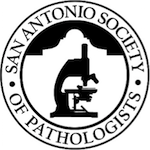
San Antonio Society of Pathologists
75th Annual Seminar
SAVE THE DATE
Problematic Issues in Breast Pathology
Saturday January 5th, 2019
Hilton San Antonio Airport Hotel
San Antonio, TX

This seminar, presented by Dr. Stuart J. Schnitt and Dr. Beth T. Harrison, will review diagnostic criteria and clinical significance of various benign, in situ and malignant breast lesions. The discussion will focus on appropriate diagnostic testing with summary of the uses and limitations of techniques, such as core needle biopsy and immunohistochemistry, and differential diagnostic problems commonly encountered in breast pathology. Case presentations will be used to highlight a practical approach to diagnosis.
This seminar is sponsored by The San Antonio Society of Pathologists, The College of American Pathologists, and The University of Texas Health San Antonio. Up to 7 CME credits are available*.
The advanced registration fee is $325 for physicians and $195 for students, residents, or fellows. Online registration is available now.
For further information, please contact:
Dr. Andrea Gilbert
Secretary, San Antonio Society of Pathologists
gilbertar@uthscsa.edu
For more information or to register, go to
San Antonio Society of Pathologists
The College of American Pathologists designates this live educational activity for a maximum of 7 AMA PRA Category 1 Credits™. Physicians should only claim credit commensurate with the extent of their participation in the activity.
[#7651]
USCAP Presents:
A Practical Approach to Problematic Breast Lesions
This interactive microscopy course, taught by experts from Harvard Medical School, Stanford and Memorial Sloan Kettering Cancer Center, is designed to eliminate a variety of practice gaps in diagnostic breast pathology.
In general, there is a misdiagnosis rate of about 10% in breast biopsies, which may be even higher for some notoriously problematic lesions. This course (through intimate mentoring) attempts to reduce or eliminate diagnostic error by highlighting pitfalls and illustrating practical approaches to resolve them, using routine microscopic examination of H&E-stained sections with appropriate ancillary testing. The intended outcome is improved clinical practice and patient outcomes.
Course Location: Palm Springs, CA
Course Director: Laura C. Collins, M.D.
January 10-13, 2019, The Canadian Association of Pathologists: 9th Annual Resident Review Course, Mississauga, Ontario (Canada) [#7011c]
![]()
January 21st - January 25th, 2019
Naples Grande Beach Resort
Naples, Florida
Tutorial on Neoplastic Hematopathology

The Tutorial, sponsored by The Department of Pathology and Laboratory Medicine, Weill Cornell
Medicine, will be held under the direction of Dr. Daniel M. Knowles of Pathology and Laboratory
Medicine. The program will consist of lectures and case presentations. The Tutorial faculty will
prepare extensive lecture notes and reference citations electronically on our website, which will
cover all topics presented at the Tutorial.
The registration fee is $1,350, after December 28, 2018 $1,450.
For further information, please contact:
Ms. Jessica Misner
Department of Pathology and Laboratory Medicine
WMC Room-302
1300 York Avenue
New York, N.Y., 10065
Telephone: (212) 746-6464
Fax: (212) 746-8192
Email: jep2018@med.cornell.edu
Website: www.cornellpathology.com
Registration: https://pathology.weill.cornell.edu/register-online-tutorial-neoplastic-hematopathology
[#7038c]
USCAP Presents:
Leadership, Collaboration and Change in Healthcare: A Course for Emerging Leaders in Pathology
With healthcare in the United States changing rapidly to meet the mandate for high-quality, cost-effective, patient-centered care, the need for effective physician leaders has never been more cogent. Leadership and management skills are essential for individual physicians and for healthcare organizations to achieve the best outcomes. Formal cultivation of these skills has not been targeted to young faculty during their formative years, creating a professional practice gap and an opportunity.
This special course is intended for junior faculty (within their first five to seven years of practice) who are interested in developing skills that will benefit them as emerging leaders at their home institution, as well as within other professional organizations. The curriculum provides an opportunity for participants to experience a guided exploration of several areas of study that are critical to effective leadership, including the characteristics of effective leadership and effective teams, the concept of emotional intelligence as it applies to leadership, understanding organizational culture and strategy, and prevention of physician burnout. The course faculty are senior academicians with experience in education, mentorship, and functioning as leaders within a changing healthcare environment.
Course Location: Palm Springs, CA
Course Directors: Carol F. Farver, M.D. & Laura W. Lamps, M.D.
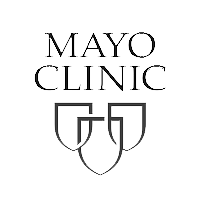
Thursday – Saturday, January 24-26, 2019
Juanita Kios Waugh Auditorium
Mayo Clinic Franke Education Center
5777 East Mayo Boulevard
Phoenix, AZ 85054
Mayo Clinic Pathology Update 2019
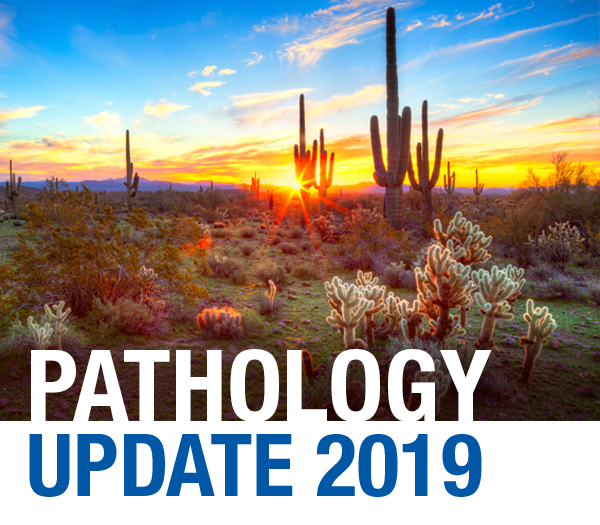
Course website/registration - https://www.ce.mayo.edu/PathUpdate2019
• An elite roster of speakers joins world-renowned pathologists, Dr. John Hart, Dr. Ming Zhou, and Dr. Lysandra Voltaggio, at our 4th annual, 2.5-day general surgical pathology course.
• Topics include: Gastrointestinal, gynecologic, genitourinary, cytology, soft tissue, skin, and hematologic organ systems.
• Presentations will include practical discussions of diagnostic challenges, need-to-know molecular updates, and emerging issues. Attendee participation is encouraged via audience response system and engaging case reviews.
Course Directors:
Longwen Chen, M.D., Ph.D.
Marcela A. Salomao, M.D.
Melissa L. Stanton, MD
Target Audience:
This course is designed for pathologists, pathologist assistants, pathology fellows and residents, and allied health staff with an interest in diagnostic pathology. It is also intended for surgeons and oncologists with an interest in new pathologic staging criteria.
[#7461]
USCAP Presents:
Liver Pathology: Translating a World of Colors into Clinically Relevant Pathology Reports
The microscopic pattern of liver biopsies for non-neoplastic diseases has changed with increasing emphasis on steatohepatitis, fibrosis regression and drug-induced liver disease. The reasons for these changes (based on consultative cases at several large medical centers) include classification of an hepatic pattern of injury, primary biliary cholangitis, fatty liver disease, autoimmune hepatitis, etiology of cirrhosis and transplant pathology (unpublished data). Among the neoplastic cases, hepatocellular carcinoma, cholangiocarcinoma/metastatic adenocarcinoma and hepatocellular adenoma are the leading areas that cause problems in diagnosis for practicing pathologists. Advances in radiologic techniques facilitate targeting smaller lesions, necessitating judicious use of immunohistochemistry.
In the last few years, characteristic molecular changes have been described in a variety of liver tumors and are increasingly being used for diagnosis. Take advantage of this fantastic mentoring opportunity to study liver interactively with experts who can improve your performance and enhance your practice.
You should consider taking this course in contiguity with Twists and Turns of Problematic GI Pathology and How to Find Your Way Out!, directed by Dr. Gregory Y. Lauwers, H. Lee Moffitt Cancer Center/University of South Florida, January 27-30, 2019.
Course Location: Palm Springs, CA
Course Director: Sanjay Kakar, M.D.
USCAP Presents:
Twists and Turns of Problematic GI Pathology and How to Find Your Way Out!
This interactive microscopy course is intended to provide an all-around review of gastrointestinal biopsy pathology for general surgical pathologists, junior GI pathologists, and pathologists-in-training, focusing on unusual lesions and common problematic areas of biopsy interpretation and analysis of appendectomy specimens. Course structure follows GI anatomic topography emphasizing key diagnostic features of inflammatory, infectious and neoplastic pathology as encountered in daily practice.
The faculty intends to stimulate dialogue around differential diagnoses, variations in presentation, effective use of ancillary tests and diagnostic decision-making. This is a superb opportunity to refine your skills by direct interaction with enthusiastic rock stars of gastrointestinal pathology at USCAP’S fabulous interactive learning center. You should consider taking this course in contiguity with Liver Pathology: Translating a World of Colors into Clinically Relevant Pathology Reports, directed by Dr. Sanjay Kakar, UCSF, January 24-26, 2019.
Course Location: Palm Springs, CA
Course Director: Gregory Y. Lauwers, M.D.
USCAP Presents:
Pathology and Cytology of the Lung, Pleura, Mediastinum and Heart/Lung Transplantation
Pathologists are generally unfamiliar with a variety of entities in lung, pleural and mediastinal pathology, leading to diagnostic errors. Furthermore, issues related to heart/lung transplantation require specialized knowledge and experience. Interactive microscopy at the USCAP Learning Center provides a unique and intimate mentoring opportunity to discuss interstitial lung disease, pleuro-pulmonary malignancies, transplant rejection, and the cytomorphologic representation of specimens from these sites, including best practices for optimal triage of lung cancer specimens for molecular testing.
Course Location: Palm Springs, CA
Course Directors: Henry D. Tazelaar, M.D. and Andrew Churg, M.D., Ph.D.
USCAP Presents:
Head and Neck Cytopathology: Practical Tools for Common Cases
Early diagnosis of a myriad of benign and malignant diseases (presenting as swellings) affecting the head and neck provides the best chance for successful treatment. Fine Needle Aspiration (FNA) is an expedient and cost-effective method to sample these masses and is the primary biopsy method for thyroid and salivary glands and a useful approach to evaluate lymph nodes. The majority of practicing pathologists have not completed formal fellowship training in cytopathology and do not have a diagnostic paradigm for these relatively common specimen types. This course is intended to help close the gap by building a strong foundation in head and neck cytopathology and familiarizing attendees with the common diagnostic challenges encountered when evaluating FNA specimens from the thyroid, salivary glands and lymph nodes. The outcome should be an increase in the number of definitive diagnoses, reduction in equivocal diagnoses, and mitigation of repeat FNA or subsequent invasive procedures. The target audience is general pathologists with an interest in cytopathology, pathology residents and fellows, surgical pathology fellows and cytopathology fellows.
Course Location: Palm Springs, CA
Course Directors: Elham Khanafshar, M.D., MS and Britt-Marie E. Ljung, M.D.
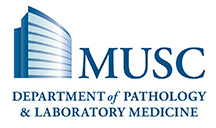
The Department of Pathology and Laboratory Medicine at the
Medical University of South Carolina
presents the
2019 Pathology Multi-Specialty Symposium
Kiawah Island Golf Resort
April 2nd through April 6th, 2019

Registration coming soon
The Pathology Multi-Specialty Symposium is a 5-day post-graduate seminar annually presented by The Department of Pathology and Laboratory Medicine of the Medical University of South Carolina. The course provides the highest level of subspecialty instruction by a distinguished faculty drawn from the nation's leading experts.
The seminar includes one day of clinical pathology, two and one-half days of surgical pathology, one and one-half days of cytopathology and one day of dermatopathology. CME credits and SAMs may be earned.
This year's symposium will be held at the Kiawah Island Golf Resort located on Kiawah Island from April 2nd through April 6th, 2019.
Website: http://mckee-seminar.musc.edu/
© Department of Pathology and Laboratory Medicine, Medical University of South Carolina
This activity has been approved for AMA PRA Category 1 Credit™
[#7648]
The introduction to Cancer Cytopathology's inaugural Supplement (Volume 125/Issue 6/June 2017) leads with the concept that cytopathology is the nexus for patient-centered care. The convergence of minimally invasive diagnostic and therapeutic techniques, refinements in imaging and guided biopsies, molecular testing and whole genome sequencing, the emergence of targeted therapies, and the awakening of pathologists to their critical role in patient care, safety and outcomes have created a new force in medicine: pathologists are critical members of the health care team and patients are at the center of their concerns and efforts.
Immersive Cytopathology Experience (ICE) has been redesigned for presentation at a fabulous venue in Reykjavik, Iceland, combining concepts from Diagnostic Cytopathology and classical ICE (a hands-on learning experience at the USCAP Interactive Learning Center). There is monumental value in case-based learning that simulates multidisciplinary collaborative interaction of hospital-based tumor boards. This program is highlighted by the interaction of interventional cytopathologists with a surgeon, exemplary patient, and challenging cases from academic institutions, focusing on head and neck clinical lesions.
Classification schemes, the molecular and genetic basis of head and neck disease, procedural approaches to specimen acquisition and processing, empathetic communication, quality and patient safety, and measuring the non-clinical performance of the academic pathologist contribute texture and depth to this learning experience.
The schedule accommodates time for you to experience ICELAND, from The Blue Lagoon to the Northern Lights and locations where Game of Thrones is filmed.
USCAP is transforming how we learn and where we learn. From a 15th century convent in Florence to the Harpa Concert Hall and Conference Centre in Iceland, learners "come from away" for their unique and enduring experience.

Registration (available October 15, 2018): www.vincentacademypathology.com/registration/ [#7656b]
USCAP Presents:
Pediatric Pathology: Selected Topics for General Surgical Pathologists
The practice of pediatric pathology differs significantly from that of adult surgical pathology: certain tumor types and medical conditions are much more common in the pediatric population (e.g., celiac disease, soft tissue sarcomas); the microscopic appearances of certain diseases common to pediatric and adult populations often differ (e.g., non-necrotizing granulomas are much more common in pediatric patients with Crohn's disease compared with adults); and molecular techniques are more commonly employed in the workup of pediatric neoplasia.
This course is intended to familiarize general surgical pathologists with pediatric specimens that occur less commonly in their practices. Highly skilled pediatric pathologists will share their expertise in an intimate mentoring experience at the USCAP Interactive Center where learning is an inevitability.
Course Location: Palm Springs, CA
Course Directors: Theonia K. Boyd, M.D. and Jeffrey D. Goldsmith, M.D.
USCAP Presents:
Practical Neuropathology for Today's Practice
Neuropathology cases provide a particular challenge for practicing surgical pathologists because they are less common than cases from other organ systems, typically comprising fewer than 1% of cases in most practices, and are relatively more complex. Consequently, pathologists have less experience with neuropathology which translates to less comfort in making diagnoses. These mentoring sessions with experts are intended to provide practicing pathologists and pathologists-in-training with strategies relating to how to approach a case, differential diagnostic considerations, ancillary testing useful to resolving differential diagnoses, and the clinical implications of their diagnostic decisions. This is your opportunity to increase your comfort level, confidence and expertise in the interpretation and classification of neuropathology cases you will inevitably see in your diverse practices.
Course Location: Palm Springs, CA
Course Director: Richard A. Prayson, M.D., MEd
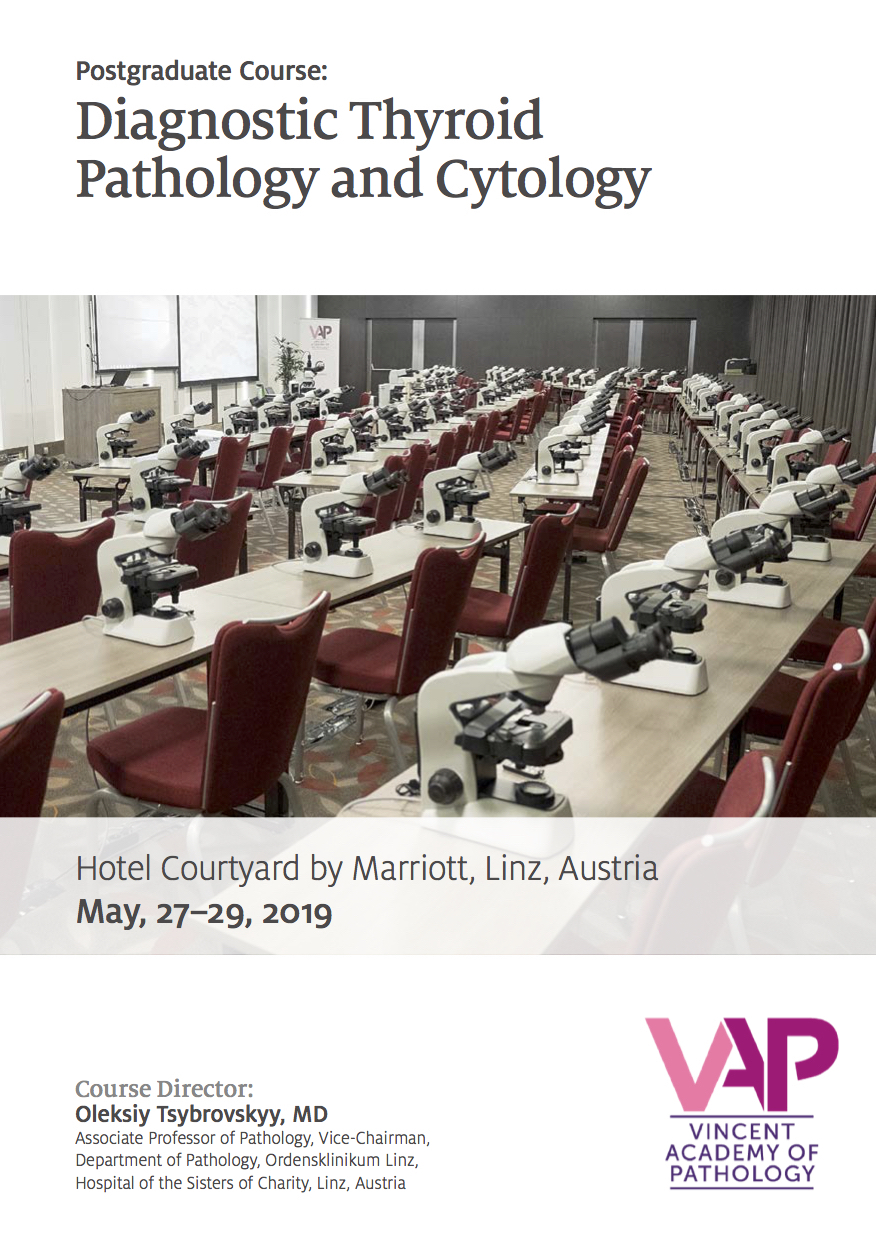
Registration (available October 15, 2018): www.vincentacademypathology.com/registration/ [#7656a]
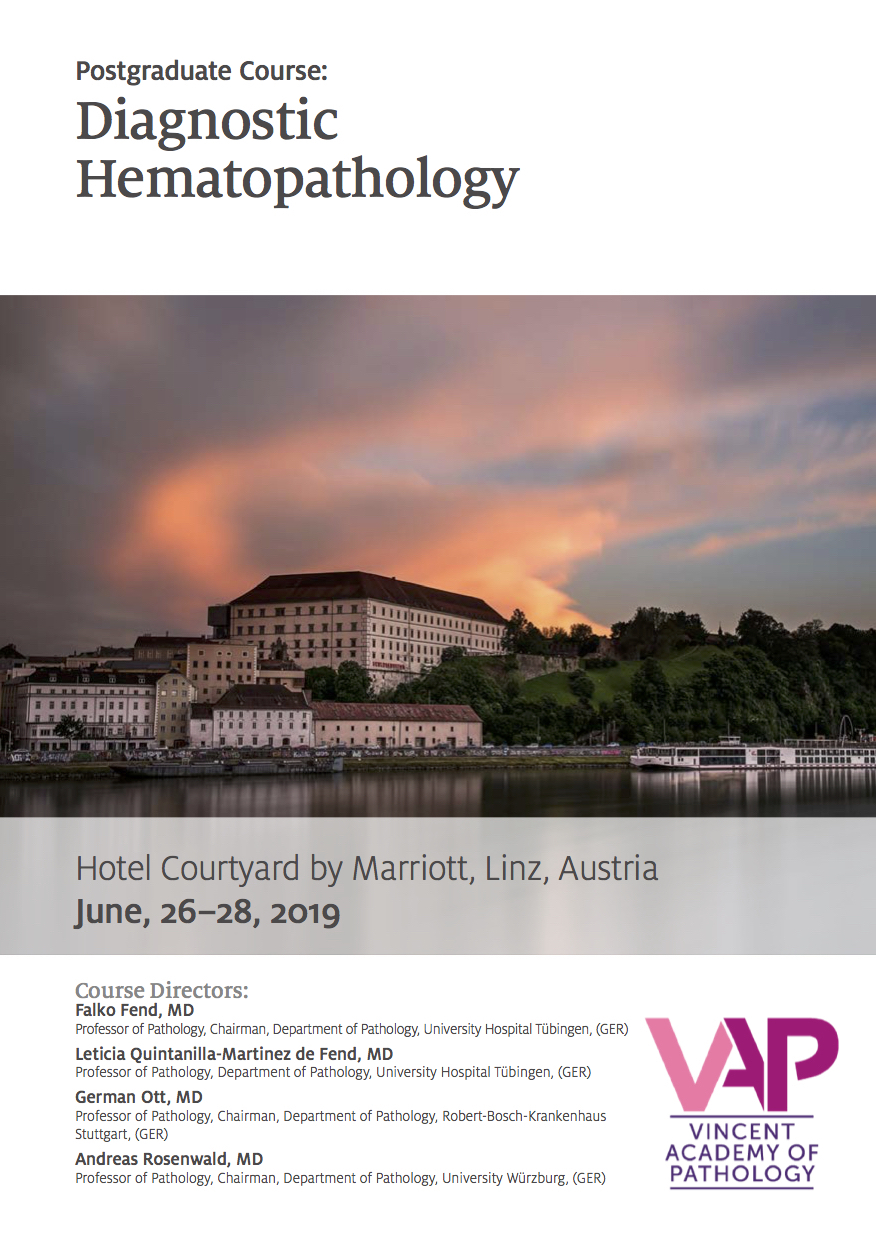
Registration (available October 15, 2018): www.vincentacademypathology.com/registration/ [#7656c]
September 5-7, 2019, The Banff Pathology Course, Banff Centre for Arts and Creativity, Banff, Alberta, (Canada) [#6075f]
USCAP Presents:
Updates of the WHO Classification of Brain and Pituitary Tumors
For the first time, the 2016 WHO classification of central nervous system (CNS) tumors uses molecular parameters in addition to histology to define many tumor entities, thus formulating a concept for how CNS tumor diagnoses should be structured in the molecular era. These new updates will facilitate clinical, experimental and epidemiological studies that will lead to improvements in the lives of patients with brain tumors. General pathologists, in particular, must become familiar with changes in diagnostic criteria and utilize them in their practice improvement strategies. The WHO classification of pituitary adenomas was revised in 2017 and includes (1) a recommendation for the assessment of pituitary transcription factors with focus on adenohypophysial-cell lineage and (2) replacement of “atypical adenoma” with “high risk adenoma” based on tumor proliferation markers and other clinical parameters (such as invasion) to predict aggressiveness. This course will illustrate and reinforce these important updates.
Course Location: Palm Springs, CA
Course Director: Arie Perry, M.D.
SAMPLE ONE LINE CONFERENCE LISTING:
Dates, Organization: Conference Title [linked to conference website], Venue, City, State (Country) [#Invoice]
SAMPLE ONE LINE WEBINAR LISTING:
Date and time, Organization: Webinar Title [linked to webinar website], speaker(s) [#Invoice]





